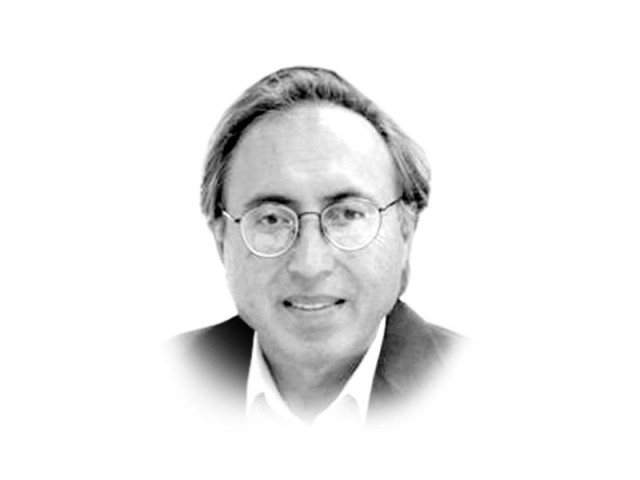Who will grab Punjab?
Nothing is certain in politics, let alone in Punjab’s politics. My gut feeling is that the province is up for grabs.

While we may see no change in the political morals, attitudes and beliefs of the Punjabi political elite, with very few noble exceptions, the province at the grassroots level appears to be witnessing some level of radical social transformation. Two things in particular are noticeable. One is growing urbanisation, seen in the movement of the new rural lower middle-class to small and medium towns and of the poor to the major cities. The second is the growing size of the rural middle-class, which is happening for two reasons: the remittances of overseas workers and the cash returns for agricultural commodities produced by small and medium-size farms.
The traditional view of Punjab, or for that matter of the country, is that nothing has changed and nothing is likely to change any time soon. Even the most backward societies are not frozen in time and no society can, in such a time of rapid global changes, live in the past. I believe advances in communications, business-industrial activity and capitalisation of agriculture have affected Punjab more deeply and extensively than any other region. We may disagree on how big the economic change is — which in my view is quite significant — but it is not captured by weak documentation of the economy.
Referring to economic change in Punjab and also in some other regions of the country, I wish to make the argument that social and political behaviours are dependent on how the economic status of individuals, social groups and society at large changes. This change, however, is not yet on the scale that would wipe out the traditional voting blocs built around caste, locality and kinship and maintained through vertical patron-client relationships.
Undoubtedly, the old politics is now too old, has been tried too many times with diminishing efficiency and has disappointed a vast majority of people in Pakistan. If one could read the real political face of Punjab or Pakistan in general, one would see anger, frustration and a feeling of helplessness written all over in bold letters. For me, this means the beginning of serious self-questioning among the Punjabi population about its conventional party loyalties. The two major parties have been reduced to competing conglomerates of traditional land and caste elites. It is the power of these networks that keeps them in power and for that they have to make compromises on governance.
Nothing is certain in politics, let alone in Punjab’s politics. My gut feeling is that the province is up for grabs. The big question is: will Imran Khan, with his charisma and broad popularity, be able to defeat the power networks of the two major parties? The kaptaan is determined, undaunted and hardly bothered by such questions, leaving them for the analysts and history to answer. The good part of his strategy is that he wants to focus on the game of politics by taking it down to the masses. This is a kind of politics that no other leader has ever practiced after the great Zulfikar Ali Bhutto.
Published in The Express Tribune, October 31st, 2011.



















COMMENTS
Comments are moderated and generally will be posted if they are on-topic and not abusive.
For more information, please see our Comments FAQ